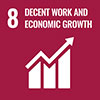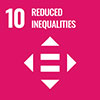AI, automation and human work: from the race to the agreement
Automation is the process of replacing human work with machines and aims to make certain tasks in the workplace more efficient. This article reviews the effects of the link between automation and artificial intelligence (AI) on people’s work. In principle, the constant improvement of AI and its ever-wider use have favoured the automation of an increasing number of tasks, particularly non-routine tasks traditionally performed only by people. This has meant that many occupations, both low- and high-skilled, as well as many workers, are in danger of being replaced after losing the race with technology. However, a review of the effects, based on the level of skills, occupations, and workers, indicates that automation is still focused on replacing routine and low-skilled tasks and occupations. If automation and AI can boost productivity to the point where new and better jobs are created and if workers acquire the skills to interact with AI, a future of enhanced work, of agreement between people and machines, is also possible.
SDG




 Pilar Ficapal-Cusí
Pilar Ficapal-CusíAssociate Professor in the Business Organization Area (Humans resources, human and organizational behaviour) at the Economics and Business Studies at the Universitat Oberta de Catalunya (UOC). Researcher in the interdisciplinary research group on ICTs, i2TIC (https://blogs.uoc.edu/i2tic/equip/pilar-ficapal/) and academic director of the Master Degree in Human Resources Management at the UOC. Her research focuses on the analysis of work quality and occupational health, sustainable management, and the effects of digital transformation on individual and organizational behaviour.



